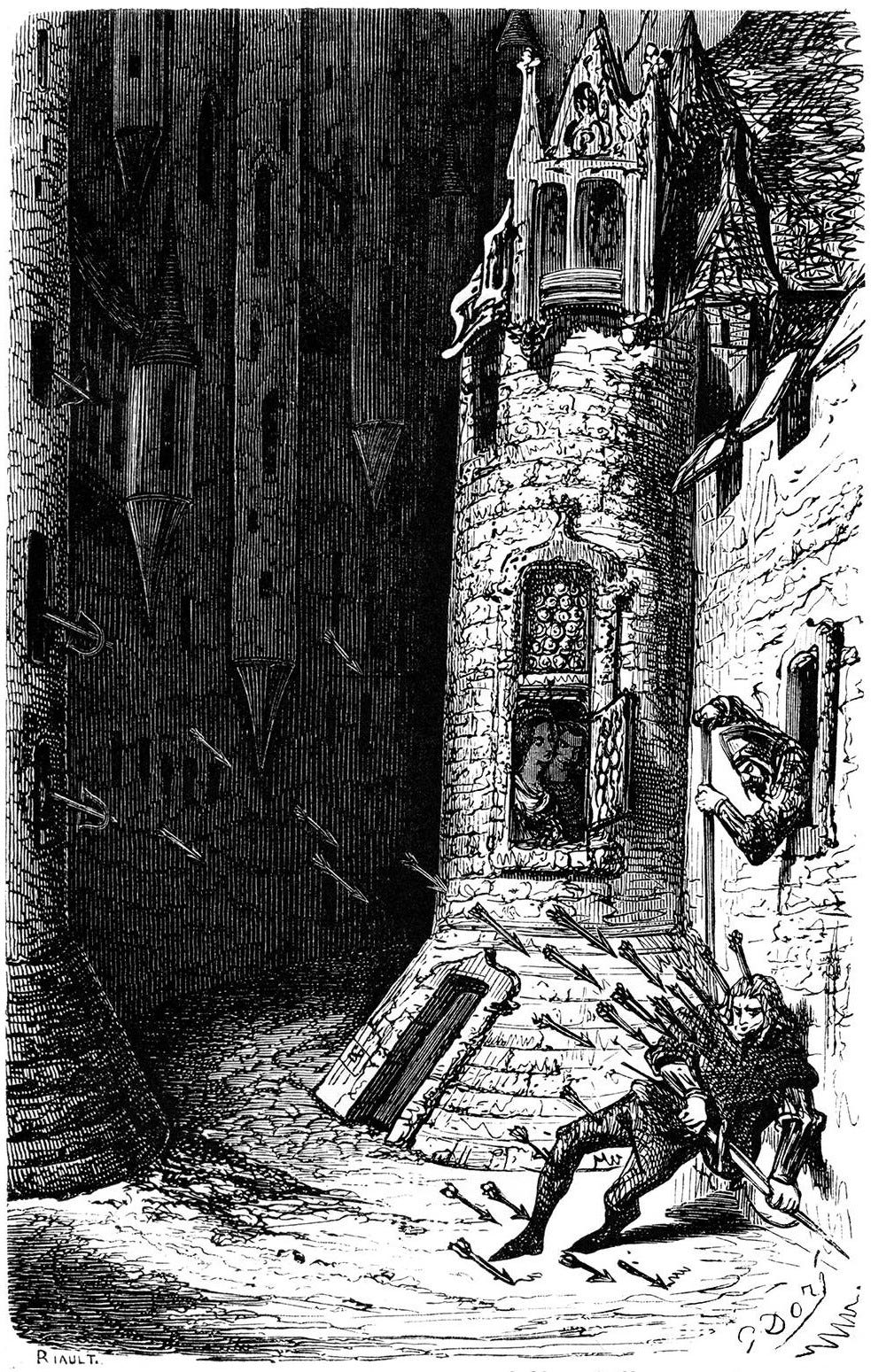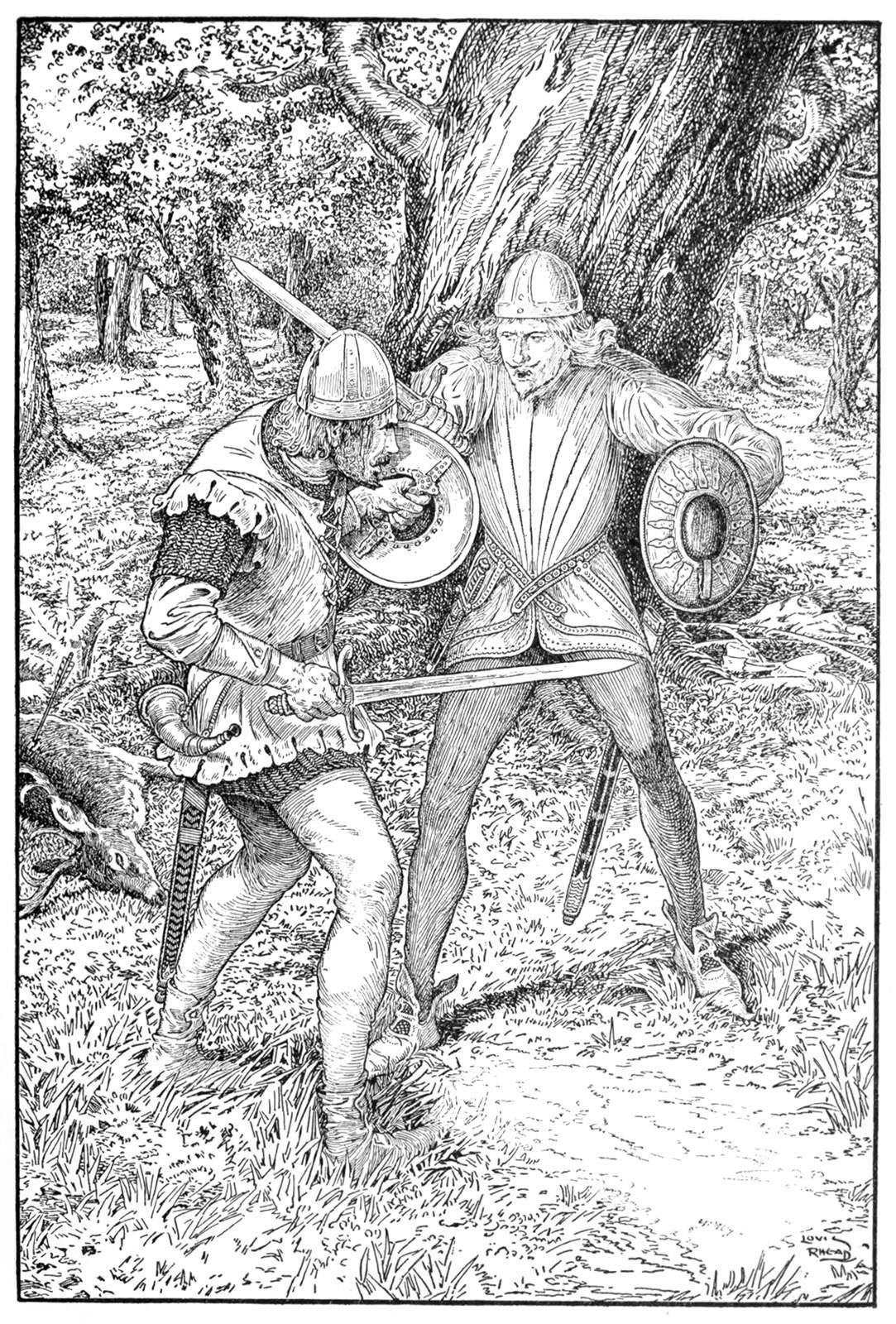If you have read my previous homebrew, you may notice that I have tried to add ways for players to push the odds for a price, so the stagnant “nothing-happens” of a failed roll is avoided as much as possible.
However, I would like to push this even further and set a system in which every time danger is present, failure always results in damage.
Additionally, I translated this idea into combat, unifying “roll-to-hit” and “roll-for-damage” into one.
This ends speeding up combat, as the “you-always-hit” of Into the Odd does (which is something that I really like from that system), but with a different approach, and adds the ever-present risk that even if you are the one attacking, you can get hurt. For my taste, this makes combat more interesting, by pushing it to always be at the verge of becoming a tragedy.
Danger as damage, unifying danger and combat
When reacting/acting against danger you roll against a DC, set by the GM, or as an opposed roll against a character (NPC or PC) that is trying to hurt you.
When reacting/acting against danger, you risk getting hurt in order to succeed.
In a tie, you and the other side roll an extra d4.
If you lose the roll, you receive as much damage as the difference between your roll and the DC or opposed roll:
Damage received = DC or Oppose Roll – Your RollExample: A character wants to climb a wall. The floor below the wall is made of sharp stones and the wall is not easy to climb. This is a dangerous situation. The DC is 17 and the character rolls 1d20+DEX = 9+2 = 11. They fail, falling from the wall. They loose DC – (1d20+DEX) = 17 - 11 = 6 HP by impacting against the sharp stones.If you win the roll in a non-combat situation, you succeed and save yourself from danger and damage.
In combat you can add your weapons die when attacking and your weapons or shields die when defending.
In combat, at any moment, the defender can sacrifice any object they are using (shield and weapons, improvise or otherwise) to deflect the attack and prevent the damage. The object is considered as destroyed.
Example: You get attacked by an archer. They roll d20+WIS+arch(d6) = 18+3+6 =27. You only have your sword. You try to use it to defend yourself from the incoming arrow. You roll d20+DEX+sword(d6)=2+2+1=5. You will loose d20+WIS+arch(d6) - ( d20+DEX+sword(d6) )=27-5=22 HP. This will kill you, so you decide to sacrifice your sword. The arrow hits it at the guard, something gets loose and the pommel and grip fall to the ground. The sword is worthless in this state.
If you win the roll when attacked from afar (ranged attack) you save yourself from danger and damage, but you do not damage the attacker → Attacking from afar is safer because you cannot get damage when attacking.
If you win the roll on close combat (melee), the amount by which you surpass the Opposed Roll is how much damage you inflict on your adversary → In close combat (melee), even when attacking you can get hurt.
Damage = (1d20 + attribute + Weapon/Shield Die) - Opposed RollExample: A character is attacked with a slingshot, they try to use their shield to protect themselves. They roll 1d20+DEX+shield(d4)=5+2+2=9. The attacker with the sling shot rolls d20+WIS+slingshot(d4)= 18+1+4=23. So the character is hit by the slingshot and losses ( d20+WIS+slingshot(d4) )-( 1d20+DEX+shield(d4) ) =18-9=9 HPIn a combat situation, if an attacker or defender gets a crit (d20=20) they can force a condition, that makes sense with the conflict, upon their adversary (in this previous post I explained the simple way in which I manage conditions in my game).
Example: Two characters are fighting. The defender rolls using her hammer, d20+STR+d6. The attacker uses his spear, d20+DEX+d8. When rolling, the defender with the hammer gets d20+3+d6=19+3+6=28. The attacker with the spear gets d20=20+3+1=24. The attacker with the spear receives 28-24=4 points of damage. However, as he got a crit (d20=20), he can force a condition upon his adversary, causing an injury to her left leg. She that fights with the hammer gets the left leg injury (-1) condition.
At the end of any non-friendly combat characters get the shaken (-1) condition. The condition has to be placed in any empty item-slot. If there is no free slot then the player has to drop an object to give space to this condition.





